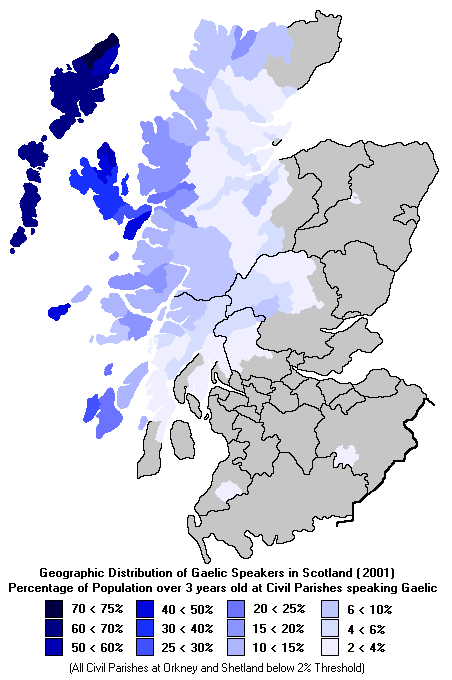Eastcoast Gaelic
Nowadays the Scottish Gaelic language is thought of as being something exclusive to the remotest Western Isles of the country - and even there rapidly declining. While the language was once spoken across most of the country it has been declining as people switch to various forms of English since the Middle Ages - and since the defeat of the largely Jacobite rebellion in the 18th century which drew most of it's strength from the Gaelic speaking Highlands the decline of the language has been rapid and left many predicting it's imminent death.
!( )
)
While all current Gaelic speaking areas are on the Western Isles or Westcoast of Scotland, it's only in the last decade that the final speakers of Eastcoast Gaelic have disappeared.
Remarkably, most of what we know of their lives and dialect comes from an American academic; the linguist Professor Nancy Dorian. As a young Phd student from the University of Michigan, in 1963 she went to live in the small fishing villages of East Sutherland where Gaelic remained the community language.
As is often the case with dying and persecuted languages, many of it's speakers were embarrassed at speaking it and showed indifference or hostility when an foreigner tried to engage them in it. Nevertheless, she managed to document the nature of the langauge while making enduring friendships with some of it's last speakers - who would become the last Gaelic speakers of Scotland's Eastcoast as the language disappeared from there after over 1,000 years of being spoken.
A short clip of the last speakers being interviewed can be seen here:
And the BBC produced a documentary about Nancy Dorian, and the last East Sutherland Gaelic speakers, in 2007 which can be seen here:
I'm a native Gaelic speaker from the Western Isles. The dialect shown in the video - while my own language - is sufficiently different that understanding it is difficult and at times I feel like I do trying to understand the dialects of Irish Gaelic. Something unique to Scotland disappeared along with the final elderly speakers of this dialect.